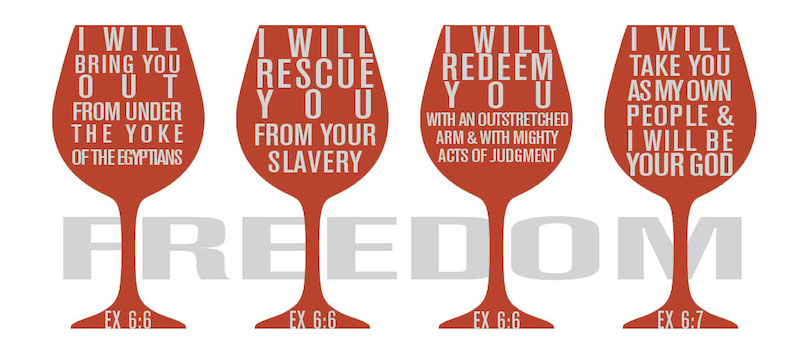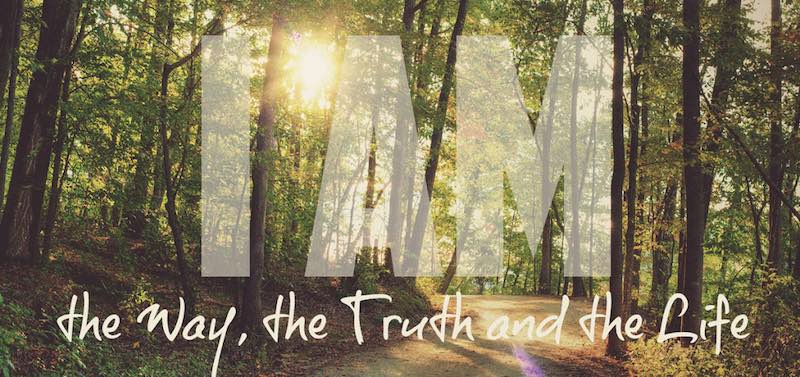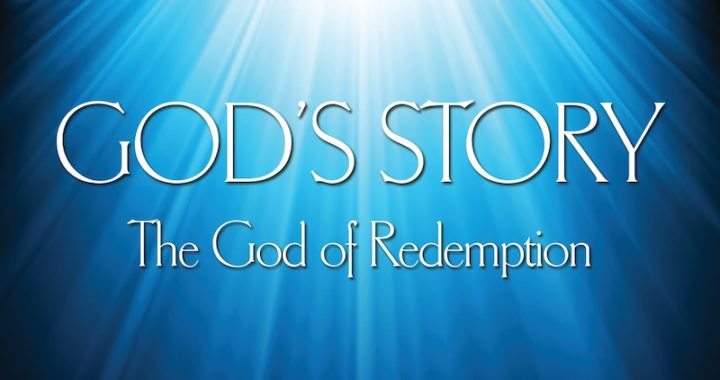Do you believe the promises of God? There are various obstacles in life that often prevent us from believing that God’s promises to us are actually true and reliable. Sometimes they just seem too good to be true. Other times it just seems impossible for certain things to actually come to fruition. This was the case with Moses and the children of Israel when God promised to redeem them from slavery and bring them out of Egypt.
Obedience Without Results
Moses and Aaron went to Pharaoh and spoke to him the words which the LORD had given them. This first attempt to set the Israelites free resulted in Pharaoh mocking them along with instituting harsher labor conditions for the Israelites. The leaders of Israel pleaded with Pharaoh because of their unsustainable labors but Pharaoh blamed their harsher conditions on their laziness and their desire to take a three-day journey to sacrifice to the LORD, the request of Moses and Aaron. The Israelite leaders in turn became angry with Moses and Aaron for causing them to fall into disfavor with Pharaoh. Moses then cried out to the LORD and asked where He was in the midst of all of this (Ex. 5).
Moses and Aaron had walked in obedience to the word of God by speaking to Pharaoh, however, their efforts only resulted in a worse situation for the people. The LORD had promised to set the people free. Where was the power of the LORD? Moses and the people had become demoralized and were losing hope. It is at this point in the story that we begin this week’s Torah Portion and see how the LORD responded to Moses by confirming His promises and His plan.
God’s Plan of Redemption
Moses needed to understand the bigger picture regarding how the nation of Israel was going to be released from Egypt because up until this point in the story (Exodus chapters 1-5) Moses had his doubts about himself and this plan of God. God met Moses where he was at and began to explain to him the whole plan:
Then the LORD said to Moses, “Now you shall see what I will do to Pharaoh; for under compulsion he will let them go, and under compulsion he will drive them out of his land.” God spoke further to Moses and said to him, “I am the LORD; and I appeared to Abraham, Isaac, and Jacob, as God Almighty, but by My name, LORD, I did not make Myself known to them. I also established My covenant with them, to give them the land of Canaan, the land in which they sojourned. – Ex. 6:1-4
God began to unfold his plan to Moses by reiterating to him the foundation of who He is: the LORD, the Everlasting One, who appeared to Abraham, Isaac, and Jacob and made a covenant with them. This same LORD was going to act on behalf of His people and fulfill His covenant.
The LORD continued to explain to Moses that in order to fulfill His covenant He would need to bring the Israelites out of Egypt. He then provided Moses with a detailed plan of release from bondage to share with the people:
Furthermore I have heard the groaning of the sons of Israel, because the Egyptians are holding them in bondage, and I have remembered My covenant. Say, therefore, to the sons of Israel, ‘I am the LORD, and I will bring you out from under the burdens of the Egyptians, and I will deliver you from their bondage. I will also redeem you with an outstretched arm and with great judgments. Then I will take you for My people, and I will be your God; and you shall know that I am the LORD your God, who brought you out from under the burdens of the Egyptians. – Ex. 6:5-7
This plan of God was not dependent on Moses, Aaron, or the leaders of Israel. This plan was only dependent on the LORD who had promised to act on behalf of His people.
The Four Redemptive Acts & The Four Cups
The release of the Israelites from bondage was totally in the hands of God and God used four descriptive verbs in the above verses to describe exactly what He planned to do on behalf of the nation of Israel:
הוצאתי אתכם – Ho’Tze’Ti EtChem – I will bring you out
הצלתי אתכם – Hi’Tzal’Ti EtChem- I will deliver you
גאלתי אתכם – Ga’Al’Ti EtChem – I will redeem you
לקחתי אתכם לי – La’Kak’Ti EtChem Li – I will take you to Myself
The LORD had a plan and He promised to fulfill it. The LORD used these four particular verbs in the Hebrew language to express exactly how He would completely redeem His people from the bondage of Pharaoh in order to bring them into freedom with Himself.

We know from the historical account of the Bible that God did precisely what He had promised to do for the children of Israel by bringing them out of Egypt. Each year at the celebration of Passover these four descriptive acts of Almighty God are remembered through the drinking of four separate cups of wine, each cup highlighting the individual redemptive acts.
The Passover celebration continually remembers the dramatic manner by which God delivered His people from the bondage of slavery to freedom and brought them from serving Pharaoh to become the people of God. This should have been enough, however, the LORD made another promise to complete the redemptive process:
“…I will bring you to the land which I swore to give to Abraham, Isaac, and Jacob, and I will give it to you for a possession; I am the LORD.” So Moses spoke thus to the sons of Israel, but they did not listen to Moses on account of their despondency and cruel bondage. – Ex. 6:8-9
The LORD had promised to give the land of Canaan to the descendants of Abraham, Isaac, and Jacob. It is one thing to be released from the bondage and slavery of Egypt but the people also needed a new place to call home.
The Fifth Redemptive Act
As we read through the story of the Exodus we are reminded of how the LORD provided complete redemption for His people. He did not simply set His people free from Egypt and then tell them to fend for themselves. The LORD Himself provided manna in the desert, the LORD Himself provided water from the rock, the LORD Himself was their shield by day and by night, and the LORD Himself brought them into the promised Land.
The LORD wanted Moses and the Israelites to know that He would be with them to the end. He was not just going to release them from bondage and then leave them. He had a complete redemptive plan in which He would ultimately bring them into the Promised Land. In connection to the other four redemptive acts, this act of bringing them into the Promised Land was the fifth redemptive act. As complete and wonderful as all of this sounded, the people struggled to believe that it was true and could not listen to Moses because of their cruel slavery (Ex. 6:9).
It is only natural to question the supernatural promises of God. In a similar manner, we can read God’s Word and His promises today and disregard them because of the challenging situations in which we find ourselves. It can be almost impossible to imagine how God’s promises could ever come to fruition during our times of pain and despondency. It is for this very reason that we need to find faith and hope as we read this historical account of what God did for Moses and the Israelites. Just as the LORD provided complete redemption for the Israelites 3500 years ago at the first Passover in Egypt, even so He provides complete spiritual redemption for us today through the final Passover in Jerusalem.
The Final Passover
It was during a Passover celebration, on the very evening when Passover began, that Yeshua cryptically explained to His disciples that He Himself was to become the Passover sacrifice as He instituted the New Covenant:
While they were eating, Yeshua took some bread, and after a blessing, He broke it and gave it to the disciples, and said, “Take, eat; this is My body.” And when He had taken a cup and given thanks, He gave it to them, saying, “Drink from it, all of you; for this is My blood of the covenant, which is poured out for many for forgiveness of sins. But I say to you, I will not drink of this fruit of the vine from now on until that day when I drink it new with you in My Father’s kingdom.” – Matt. 26:26-29
Just as the LORD had given Moses a descriptive plan of how He would deliver and redeem the Israelites from the state of slavery and bondage, Yeshua explained to His disciples how He would provide freedom from the slavery of sin through the offering of His own body. To learn more about the Messianic connections found in the Passover celebration, read the following article: Passover
Yeshua’s fulfillment of the elements of Passover two thousand years ago provides complete redemption to those who believe in Him today. Yeshua became the sacrificial lamb. He provided redemption from the slavery of sin. He provided freedom for us to live a new life in Him and He gave us the right and privilege to be called “children of God” (John 1:12). There is complete redemption through Yeshua’s life, death, and resurrection. Yeshua also provided a “fifth stage of redemption” just as the LORD did for the Israelites 3500 years ago.
During that same Passover celebration, Yeshua not only told His disciples that He would redeem them from the slavery of sin but that He would also bring them into the spiritual Promised Land:
“Do not let your heart be troubled; believe in God, believe also in Me. In My Father’s house are many dwelling places; if it were not so, I would have told you; for I go to prepare a place for you. If I go and prepare a place for you, I will come again and receive you to Myself, that where I am, there you may be also. And you know the way where I am going.” Thomas said to Him, “Lord, we do not know where You are going, how do we know the way?” Yeshua said to him, “I am the way, and the truth, and the life; no one comes to the Father but through Me. If you had known Me, you would have known My Father also; from now on you know Him, and have seen Him.” – John 14:1-7
Yeshua informed His disciples that He was going to prepare a place for them in His Father’s house. Yeshua promised to redeem them from the bondage of sin and to bring them into a place of freedom and spiritual wholeness together with the Father in heaven.

As wonderful as these words sounded, Yeshua’s disciples struggled to understand all that He was telling them at that time. Just the children of Israel struggled to comprehend the fullness of the redemption of the LORD during their slavery in Egypt (Ex. 6:9), even so Yeshua’s disciples struggled to understand the fullness of the spiritual redemption that He was promising them. Unfortunately, it is too easy to become so entrenched in the thinking of this world that we struggle to comprehend the spiritual truths of God’s Word and His promises to us.
Has so much changed after 2000 years? Do we understand more than the disciples about the complete redemption that we have obtained through believing in Yeshua?
The Fifth Stage of Redemption
All of the promises that Yeshua gave to His disciples are valid for us today. We have complete forgiveness of sin through the blood and broken body of Yeshua along with the promise of resurrection, as He Himself was resurrected from the dead. We often hear about the promise of heaven for those who believe in Yeshua and we look forward to our eternal home. I wonder, however, if we sometimes miss the more important destination of spending eternity with our Lord while realizing that He is the Way, the Truth, and the Life. Our hope is in a person and not a place!
Shabbat Shalom!
If you enjoyed reading this article, share it today with friends! We also invite you to sign up for our weekly Torah Portion commentary on the sidebar to the right.
Help keep our weekly commentaries free and available to all. Click here to donate today:
Torah Portion: Ex. 6:2 – Ex. 9:35
Haftara: Ezekiel 28:25 – Ezekiel 29:2
Return to Torah Portion Homepage
Copyright Jewels of Judaism. All rights reserved 2019



Thank you Daniel again and again for explaining what faith means. I’m thankful to have found your inspiring and informative texts. I really appreciate your knowledge and guidance in finding out more about how to beleive. Shabbat Shalom!